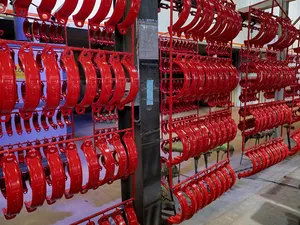
Male Female Connector Plastic Push Locking Connector Medical Plug Male Female Connectors 2 3 4 5 6 7 8 9 10 12 14 Pins


WFHSH 1-12" FM UL Fire Fighting Casting Grooved Pipe Fittings Customized Rigid Couplings Flexible Couplings





















Expansion plugs are essential components in various construction and industrial applications. These devices, designed to anchor into materials such as concrete, masonry, and stone, provide a secure hold for fixtures and structures. The versatility of expansion plugs makes them suitable for both light-duty and heavy-duty tasks, ensuring stability and safety in numerous projects.
The range of expansion plugs includes rubber expansion plugs and metal variants, each serving specific environments and purposes. Rubber expansion plugs, often used as drain expansion plugs or rubber freeze plugs, offer a flexible solution for sealing pipes and holes, adapting to slight size variations with ease. Metal expansion plugs, such as the 1 1/2 expansion plug or the 2 1/2 expansion plug, are typically employed for more permanent and rigid anchoring needs.
From securing handrails and awnings to supporting staircases and pipelines, expansion plugs are integral to a multitude of structures. Expandable pipe plugs are particularly useful in plumbing and maintenance, allowing for temporary or permanent sealing of pipes. In contrast, asphaltic plug expansion joints cater to the construction industry, accommodating thermal expansion and contraction in structures like bridges and roadways.
The material composition of an expansion plug can significantly influence its performance. For instance, rubber expanding pipe plugs are known for their resilience and adaptability, making them ideal for applications where a tight seal is necessary. Metal expansion plugs, on the other hand, offer superior strength and are less likely to be affected by temperature changes, which is crucial for outdoor and engine applications, such as engine expansion plugs.
While mechanical expansion plugs require precise pre-drilled holes, chemical anchors offer more flexibility during installation. Chemical anchors can fill imperfect or oversized holes, making them a practical choice for complex installations. It's important to select the appropriate type of plug, such as an expandable freeze plug for thermal applications or a 1 1/4 freeze plug for specific size requirements, to ensure a successful installation.
Selecting the correct expansion plug is crucial for the integrity of the structure it supports. Factors such as the material of the base, environmental conditions, and the load it needs to bear should guide the choice. Whether it's a 1 1/2 freeze plug for automotive applications or a 1 2 freeze plug for smaller fixtures, the right expansion plug can make all the difference in the longevity and reliability of an installation.